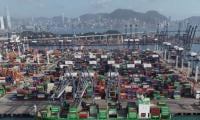Are we all not refugees?
Viet Thanh Nguyen is a young and upcoming American writer and author of the bestselling novel, ‘The Sympathizer’. He landed in the ‘land of the free’ with his family in the summer of 1975 after a long and arduous journey from war-ravaged Vietnam.
Nguyen’s debut novel created quite a sensation in literary circles and gone on to win the 2016 Pulitzer Prize for Fiction. The novel has been characterised as an “immigrant story.” However, the author himself chooses to describe it as a war story and himself as a refugee who, like many others, has “never ceased being a refugee in some corner of my mind.”
In an article in the ‘New York Times’, the author who is also the author of a collection of moving short stories titled ‘The Refugees’, makes an impassioned plea for people of his kind – desperate souls who have been driven out of their homes and lands by wars and conflicts and forced to seek refuge far from home in distant, alien lands.
Pointing out the critical difference between immigrants and refugees, Nguyen argues: “Immigrants are more reassuring than refugees because there is an endpoint to their story. However they arrive, their desires for a new life can be absorbed into the American dream or into the European narrative of civilization. By contrast, refugees are the zombies of the world, the undead who rise from dying states to march or swim toward our borders in endless waves.”
Today, according to available statistics, there are at least 60 million stateless people out there, that is, one in every 122 people alive today is a refugee or stateless. But these numbers are hardly accurate, nor do they reflect the grim reality of the lot who are dying every day on high seas and on equally perilous routes on land for that promise of a future beyond the horizon.
Hundreds and thousands of people put their lives on the line every day and every week, jumping on leaky, overcrowded boats for a better, more economically rewarding life in the West. Luckily for some of them, they are saved in time. However, many of them are not so fortunate.
Who could forget the 2015 stunning images of the toddler Aylan Kurdi at the height of the Syrian refugee crisis, whose tiny, plump body had washed ashore in Turkey after his family’s disastrous attempt to reach Europe?
Call them refugees, migrants or whatever, they all seem to know full well the perilous and often fatal nature of their journeys. Yet more and more of them are taking to the seas often at the cost of their lives. Apparently, an uncertain future is better than a doomed present.
It is hardly surprising that most of these refugees have been originating from the greater Middle East – Iraq, Syria, Libya, Somalia, Yemen (and from South Asian Afghanistan – and from lands that have been turned upside down as a direct consequence of the reckless abuse of power and mindless ‘interventions’ by global powers.
So there is perhaps a kind of poetic justice in these political and economic refugees from the global South heading northward and landing on the western shores in their droves. Yet with the exception of Angela Merkel’s Germany, most liberal Western democracies have stiffed up their backs to stem this tide of desperate humanity with steely resolve, unmindful of their role in creating it.
The European Union struck a morally indefensible deal worth billions of dollars with Turkey to keep refugees locked inside their camps. The refugee influx into Europe, especially from Syria, has since come down significantly, thanks to the deal with Ankara.
On the other hand, the arrival of mostly Muslim refugees has also unleashed a massive backlash of Islamophobia and racism across Europe, giving rise to the extremist parties like the one led by Geert Wilders of the Netherlands.
France, the proud home of liberté, égalité and fraternité, sees no irony in forcing Muslim women to take off their veils and ‘burkinis’, the full-body swimwear increasingly preferred by Muslim women, in the name of freedom. Clearly, modesty is a threat to liberal nudity of French beaches.
In countries like the Scandinavian paradise of Denmark, Muslims are finding themselves increasingly unwelcome with some Danes openly calling for kicking out Muslims.
While the reluctance of the all-white, Christian continent to accept predominantly Muslim refugees from the Middle East is understandable, the resistance against refugees from Syria and other hotspots is even greater in the land of the free, a nation that was essentially built by immigrants.
Ironically, even the ancestors of politicians like Donald Trump, who hated his way to the White House and banned the entry of Muslims and is now building a wall with Mexico to keep out refugees, also arrived here as immigrants like everyone else.
Thanks to the sweetness and light that Trump has been spreading, there has been a surge in hate attacks on Muslims. While America takes immense pride in being the ultimate land of opportunity and as a country that was built by the immigrants, it has been incredibly small-minded in accepting refugees from Syria and other conflict zones.
Probably it is the fear of so-called radical Islam that is to blame. The attacks in Paris, Brussels and in San Bernardino and Orlando in the US itself, do not help. But let us not forget that these refugees are also victims of war, violence and extremism.
These desperate men, women and children are here looking for refuge and protection and would as such be eternally indebted to the host countries. They pose no threat to anyone. They are no different from the first white settlers, the Puritans who arrived in the US in order to escape persecution in Europe.
Australia, another country built by immigrants, sees no irony in turning away desperate asylum seekers in rickety boats and incarcerating them in islands like Nauru and Manus in inhuman conditions. Ironically, Australia’s national anthem promises refuge to all newcomers.
Today, if there are any truly homeless, tempest-tossed people on earth, the wretched refuse, it is these refugees. They have fled their countries because staying on would have meant certain death. Indeed, their efforts to fan out across the world to protect their loved ones are nothing short of heroic.
As Viet Thanh Nguyen puts it, many of these refugees have undertaken and are undertaking journeys that were as perilous as those undertaken by early astronomers and Christopher Columbus himself, the man who discovered America.
This is perhaps why migration is seen as a sacred tradition of prophets. Islamic history would be incomplete without many migration, including the historic one that the Prophet (pbuh) had to undertake, Makkah to Medina, transforming the world history, literally.
As the example of Nguyen and millions like him shows, most refugees do not just do well for themselves but they end up enriching their societies and adopted countries in unimaginable ways. Look at the shining, spectacular miracle that the migrant workers have fashioned out of sand in the Arabian desert. Dubai’s skyscrapers would be unimaginable without the sweat and blood of the humble Indian, Pakistani, Bangladeshi and Filipino worker.
The great American dream would be incomplete without its share of enterprising immigrants and hardworking refugees. Where would Australia, New Zealand and Singapore be without their immigrants?
But while imploring the Western countries to open their doors to refugees, Muslim societies cannot afford to lose sight of their own responsibility towards this dispossessed lot. If anything, their duty to protect their own kind is even greater.
The writer is an independent writer and former editor.
Email: Aijaz.syed@hotmail.com
Twitter: @AijazZaka
-
 ‘Miracle On Ice’ Redux? US Men Chase First Olympic Hockey Gold In 46 Years Against Canada
‘Miracle On Ice’ Redux? US Men Chase First Olympic Hockey Gold In 46 Years Against Canada -
 Friedrich Merz Heads To China For High Stakes Talks In An Effort To Reset Strained Trade Relations
Friedrich Merz Heads To China For High Stakes Talks In An Effort To Reset Strained Trade Relations -
 Astronauts Face Life Threatening Risk On Boeing Starliner, NASA Says
Astronauts Face Life Threatening Risk On Boeing Starliner, NASA Says -
 Hailey Bieber Reveals How Having Ovarian Cysts Is 'never Fun'
Hailey Bieber Reveals How Having Ovarian Cysts Is 'never Fun' -
 Kayla Nicole Looks Back On Travis Kelce Split, Calls It ‘right Person, Wrong Time’
Kayla Nicole Looks Back On Travis Kelce Split, Calls It ‘right Person, Wrong Time’ -
 Prince William And Kate Middleton Extend Support Message After Curling Team Reaches Olympic Gold Final
Prince William And Kate Middleton Extend Support Message After Curling Team Reaches Olympic Gold Final -
 Nvidia CEO Praises Elon Musk, Calls Him An ‘extraordinary Engineer'
Nvidia CEO Praises Elon Musk, Calls Him An ‘extraordinary Engineer' -
 Shia LaBeouf's Mugshot Released After Mardi Gras Arrest On Battery Allegations In New Orleans
Shia LaBeouf's Mugshot Released After Mardi Gras Arrest On Battery Allegations In New Orleans -
 Timothee Chalamet Felt '17 Again' After Reunion With 'Interstellar' Director Christopher Nolan
Timothee Chalamet Felt '17 Again' After Reunion With 'Interstellar' Director Christopher Nolan -
 Conan O'Brien Speaks First Time After Rob Reiner's Killing
Conan O'Brien Speaks First Time After Rob Reiner's Killing -
 Giant Tortoise Reintroduced To Island After Almost 200 Years
Giant Tortoise Reintroduced To Island After Almost 200 Years -
 Eric Dane Drops Raw Confession For Rebecca Gayheart In Final Interview
Eric Dane Drops Raw Confession For Rebecca Gayheart In Final Interview -
 Trump Announces New 10% Global Tariff After Supreme Court Setback
Trump Announces New 10% Global Tariff After Supreme Court Setback -
 Influencer Dies Days After Plastic Surgery: Are Cosmetic Procedures Really Safe?
Influencer Dies Days After Plastic Surgery: Are Cosmetic Procedures Really Safe? -
 Eric Dane Confesses Heartbreaking Regret About Daughters' Weddings Before Death
Eric Dane Confesses Heartbreaking Regret About Daughters' Weddings Before Death -
 Nicole 'Snooki' Polizzi Reveals Stage 1 Cervical Cancer Diagnosis
Nicole 'Snooki' Polizzi Reveals Stage 1 Cervical Cancer Diagnosis



